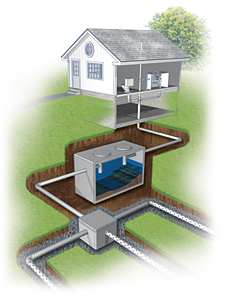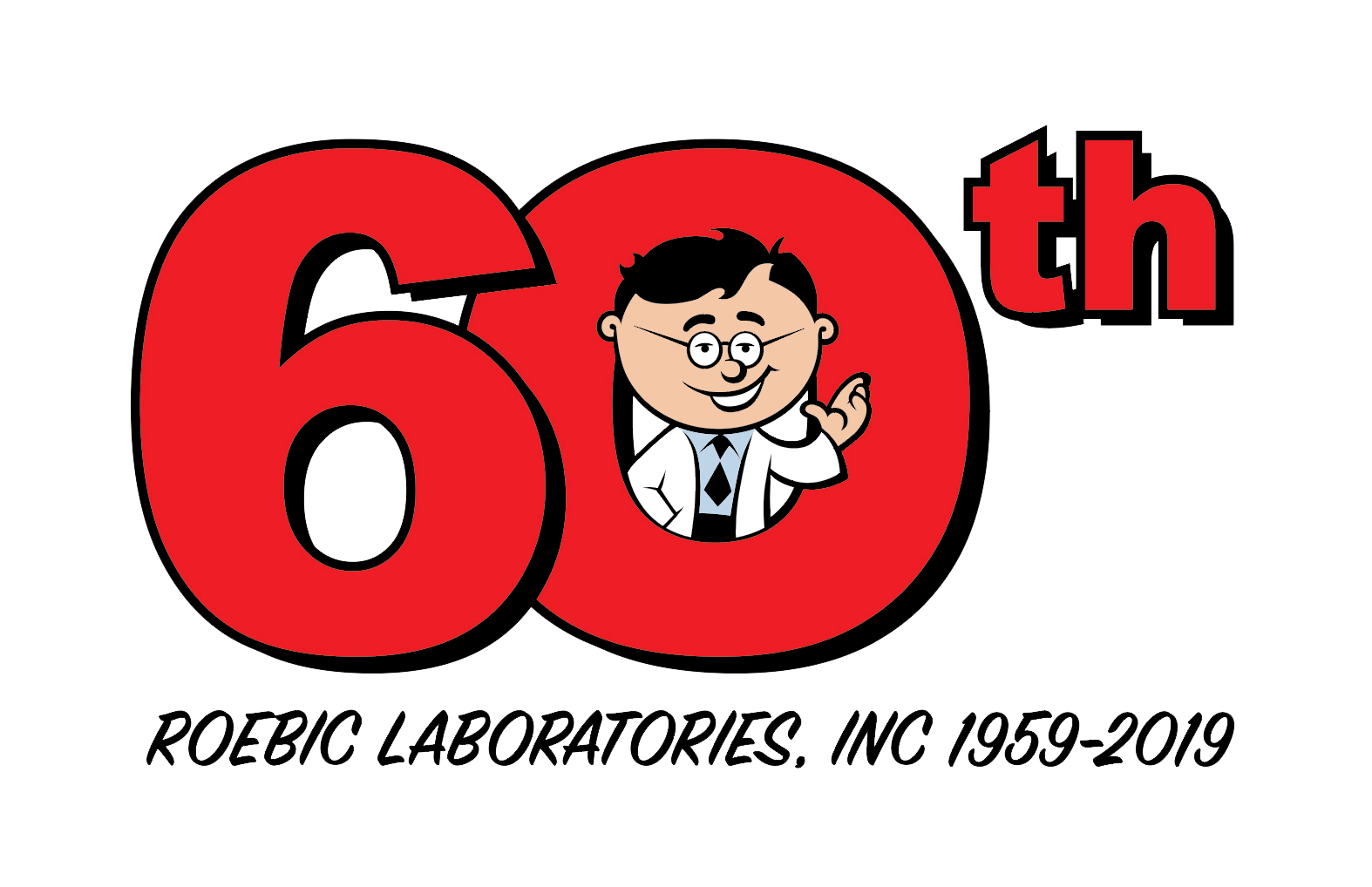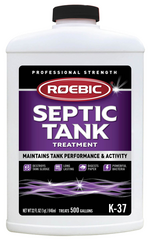Your Wastewater System

System Maintenance is Easy and Inexpensive
Easy maintenance: To help maintain a properly working septic system apply one bottle of Roebic K-37 Septic Tank Treatment. (One bottle for every 500 gallons of septic tank capacity, consult the bottle for further directions). Septic Tank Treatment contains a blend of beneficial bacteria that thrive in a "septic" environment (low oxygen, high nitrate), and through their metabolic activities they accelerate the breakdown of sewage waste, which helps to keep your septic tank functioning properly.
Roebic also offers a dry septic maintenance product, Granular Septic System Treatment for those who prefer to apply a product several times a year. These bacteria, like K-37 Septic Tank Treatment, will digest proteins, fats, starches, and paper to keep the septic system running smoothly.
For AERATED septic systems, Air-O-Paks are the product of choice. Four 8 ounce water soluble packs of a concentrated bacteria mixture will keep the aerated septic tank at its peak to assure problem free performance.
If your septic system is either sluggish or clogged, refer to the section entitled "If your septic or cesspool system seems sluggish or is clogged" for the proper treatment.
Avoid misusing your septic system: A septic tank and system is a simplified version of an "on site" sewage treatment plant. If a sewage treatment facility is misused, or overworked, the effluent from the facility will be improperly treated. In other words, the facility will fail to properly do its job. The same is true for a septic system.
Misuse of a septic system occurs when people either overuse their system or consciously or unconsciously add harmful substances to their system by either pouring them down the drain or by flushing them down the toilet. Materials that should not be disposed of in this manner include: chemical cleaners, and household chemicals such as bleach, motor oils, petroleum distillates, pesticides, paints, disinfectants, paper towels, hair, plastic applicators, and other hard to degrade and/or non-biodegradable trash.
In addition, the use of garbage disposals should be restricted. Avoid using your garbage disposal for all of your organic waste, especially foodstuffs that are high in grease and fat. Disposal of chicken skins or meat bones in this manner should also be avoided.
These types of items all negatively effect the septic tank environment. Some may alter the pH or the dissolved oxygen levels, and others may be inhibitory or biocidal to the resident bacteria. Regardless of their mode of action, these items will distort the biological balance in your septic system leading to possible septic failure. Remember the kitchen sink, bathroom sink, toilet, and often washing machines, all lead to your septic tank.
It is also best to limit water usage when possible in order to reduce pressures put on your septic system. Taking shorter showers and running full loads in your dishwasher and washing machine will result in decreased water usage. Refer to "Where does your washing machine and dish water go."
Pumping: Pumping is a necessary part of proper septic system maintenance. A neglected, misused septic tank will need to be pumped more often than one that has been properly maintained with Roebic products. You should consult your local health department for their recommended pumping schedules. Most health departments would consider a septic tank that has not been pumped out within the last 5 years to be overdue for a pumping. If you fall into this category it would be best to get the tank pumped out and inspected.
Following a septic tank pumping it is a good idea to "reseed" the tank thereby assuring that the proper microbial populations are represented. Reseeding may be accomplished by pouring two bottles of Roebic K-37 Septic Tank Treatment down the toilet four to five days after the pumping. This will help to quickly get the tank functioning properly.
« back




